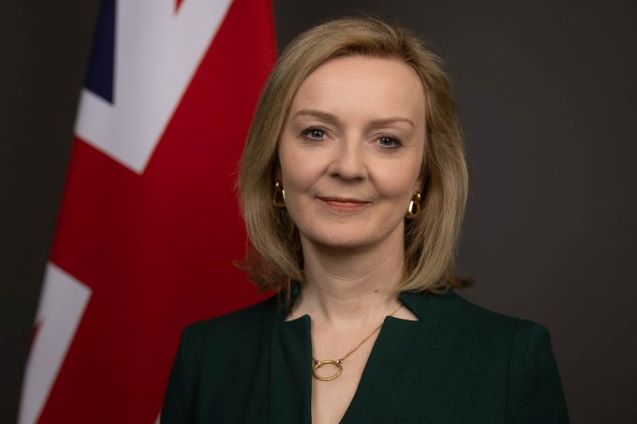British Prime Minister Liz Truss has appointed Jeremy Hunt to replace Kwasi Kwarteng as chancellor and reversed a plan to cut corporation tax, scrapping a key part of the economic plan that had sparked market turmoil.
Kwarteng confirmed that he was asked to “step aside” as chancellor on Friday.
“You have asked me to stand aside as your Chancellor (of the Exchequer). I have accepted,” he wrote in a letter to Truss, which was published on his Twitter account.
Shortly afterwards, Hunt, who has previously served as foreign secretary and health secretary, was appointed as Kwarteng’s replacement.
Kwarteng’s departure comes after a month in the job — and three weeks after he announced a tax-cutting “mini budget” that sent the pound plunging to record lows against the US dollar.
The response from markets was so ferocious that the Bank of England intervened to prevent pension funds from being caught up in the chaos, as borrowing and mortgage costs surged.
Corporation tax reversal
Truss, a free-market libertarian, came to power last month pledging to cut taxes to spur growth. But her ability to deliver on that commitment is now in doubt. She has been under intense pressure to scrap some of the 43 billion pounds ($48bn) in unfunded tax cuts in the “mini budget”.
The prime minister confirmed at a hastily arranged news conference later on Friday that corporation tax would rise from 19 percent to 25 percent, in line with plans set out by the previous government. Under the “mini budget”, the tax was due to be frozen at 19 percent. The reversal is expected to reduce the bill for her economic programme by about 18 billion pounds ($20bn) a year.
Truss said she was acting to “reassure the markets of our fiscal discipline” and promised to press on with other aspects of her economic plan, saying, “I want to deliver a low tax, high wage, high growth economy.”
Al Jazeera’s Jonah Hull, reporting from 10 Downing Street, said the reversal was an attempt by Truss to “calm the markets”.
“And by removing the chancellor, she will be effectively hanging the blame of this entire experiment in fiscal unorthodoxy – as economists call it – on his shoulders so that she can go ahead and reset her government and have some hope of soldiering on herself.”
Kwarteng defends plan
In his departure letter, Kwarteng defended the government’s economic plan, saying the country faces an “incredibly difficult” situation and “following the status quo was not an option”.
“As I have said many times in the past weeks, following the status quo was simply not an option,” he wrote.
“For too long this country has been dogged by low growth rates and high taxation – that must still change if this country is to succeed.”
Kwarteng is the United Kingdom’s shortest-serving chancellor since 1970, and his successor will be the fourth finance minister in as many months in Britain, where millions are facing a cost of living crisis.
Who is the new chancellor?
Jeremy Hunt ran unsuccessfully to lead the Conservative Party in 2019, but is widely respected within the party and could offer stability to Truss as she seeks to shore up her base.
Al Jazeera’s Hull said Hunt is “a man without an enormous amount of experience in treasury matters, but a lot of experience in government”.
“[He was] a former health secretary, a former foreign secretary as well, a man who comes from a very much opposing wing of the party to Liz Truss; he supported Rishi Sunak in the leadership campaign,” Hill said.
“This is potentially an effort by the prime minister to reach across the aisle and try to secure some unity in her very troubled party.”__Courtesy Al Jazeera.com





